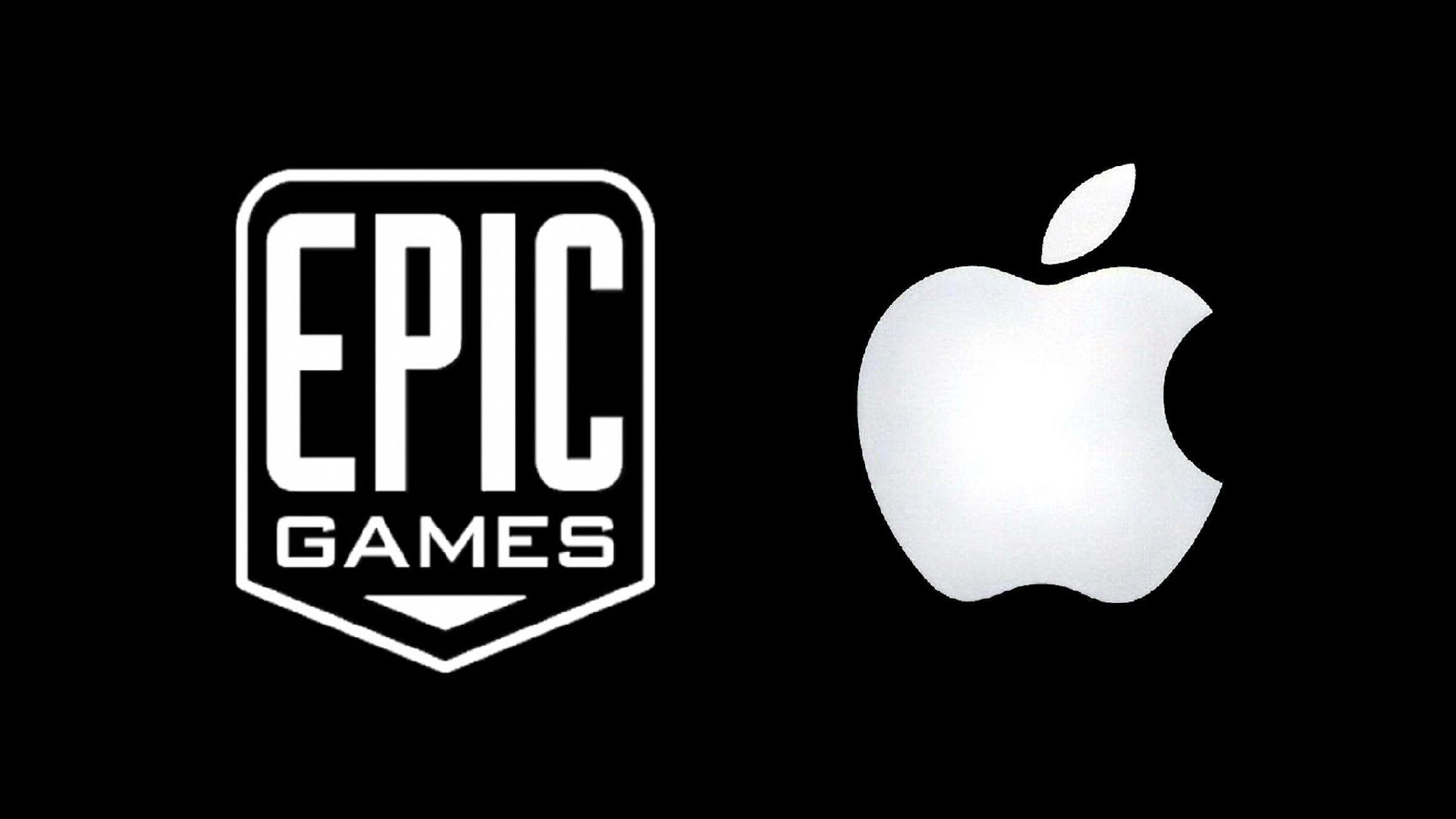
Epic Games and Apple have been locked in a public conflict for the last couple of weeks, but this didn’t just come out of nowhere. This is a conflict that has been brewing for a while. Apple’s policies have had Epic disgruntled, and the latter has publicly spoken out against them before. Until very recently, the developer was going along with those policies regardless – which is not surprising, given how much revenue Fortnite on iOS brings for them – but midway through August, things changed.
What exactly happened though? And what is it exactly that Epic have taken issue with? And why the hell should you care, especially if you’re someone who doesn’t give two hoots about Fortnite? Well, though Fortnite was what kicked this whole thing off, the conflict between Epic and Apple is much larger- and one that is going to have an industry-wide, long-lasting impact, regardless of which way the pendulum swings. Before we get into that though, let’s talk about what actually happened to begin with.
Before that, we’ll have to talk about some of Apple’s policies that it places on all developers and publishers who sell their apps and games via the App Store on all Apple devices, both iOS and Mac. The first is that every time your app is sold, Apple gets a 30% cut of the revenue from that sale (although the 30% is applied only to the first year for all subscription services, with the revenue tax dropping down to 15% starting with their second year on the App Store). The 30% revenue cut isn’t out of the ordinary- it is an industry standard that almost all major digital storefront holders enforce, including the likes of Google’s Play Store, Steam, Xbox Live, PlayStation Network, and Nintendo.
All except, notably enough, the Epic Games Store, which only demands a 12% cut from all sales. In fact, this significantly lower revenue cut has been one of the biggest weapons in the Epic Games Store’s arsenal as it has tried to take on Steam over the last couple of year (combined with a slew of exclusive and timed-exclusive releases and a steady and attractive stream of major games being given away for free). In the App Store’s case though, it’s interesting to note that the 30% revenue cut isn’t exactly a hard and fast rule. For instance, in 2017, Apple agreed to take a 15% cut from Amazon subscriptions instead of the 30% they take from everyone else so that the latter would finally bring Prime Video to the App Store.
Back to the App Store though, there is one more restriction it places on developers using the platform- any options for in-app purchases (which mean microtransactions, if those apps are games), have to go through Apple itself. App developers and publishers cannot include direct payment options, which, as per the App Store guidelines, is done to ensure absolute safety in apps – and especially payment options – on the store.
This, combined with Apple’s 30% revenue cut, means that developers often choose to raise prices of in-app purchases to cut down on loss of profits. Hypothetically, if the revenue cut was smaller than that, the prices, too, could go lower, since they wouldn’t have to recoup the share lost to that cut. It’s worth noting (again) that Apple doesn’t do this exclusively. Not allowing third party developers to offer direct payment options is an industry-standard safety practice followed by pretty much all major digital storefronts.
So now that we’ve got all of that out of the way, how exactly did the whole Epic vs Apple conflict kick off? Well, on August 13th, Epic included an option for direct payment methods in Fortnite on both iOS and Play Store, and with Epic bypassing the revenue cuts from Apple and Google respectively, those direct payment options allowed for lower prices. It was, in no vague terms, a very direct violation of both stores’ policies- and to no one’s surprise, Apple and Google retaliated by taking Fortnite off the the App Store and Play Store.
Epic, in turn, responded by immediately suing both companies. Though there’s no hard evidence that points to the notion, it’s fair to say that they were ready for it, almost like they were waiting for this. Within hours of Fortnite being taken off the two stores, Epic had filed long, detailed legal documents in suits against both with a plethora of arguments, case law citations, and what have you. Epic had been publicly speaking out against Apple and Google’s policies for a good couple of years now, and a couple of weeks ago, that materialized into actual legal action. This went hand-in-hand with an embarrassing effort on Epic’s part to mobilize the Fortnite fanbase and social media at large with the #FreeFortnite campaign, and a parody of Apple’s iconic “1984” ad.
Though the cases against Apple and Google both came at the same time, the former bore the brunt of the impact, which isn’t surprising, given how much of a closed system iOS is. Unlike the App Store, the Google Play Store is one of many options available on Android devices- third party stores and apps are allowed on the mobile OS (Epic themselves have their Epic Games launcher available on Android devices), while downloading of apps can also be done through direct links (which is something that is an option for Fortnite on Android as well). Fortnite, in fact, can still be downloaded on Android devices through those means, though it is no longer available on the Play Store. On iOS, on the other hand, there is no way for apps to be downloaded other than through the App Store.
In the legal documents Apple filed in response to Epic’s lawsuit, the company said that before direct payment options were included in Fortnite, Epic Games CEO Tim Sweeney had sent an email to Apple’s top brass asking for direct in-app purchases to be made available in Fortnite, and asking that the same options is extended to all other third party developers using the App Store as well. When Apple didn’t comply, Epic went ahead and included direct payment options in Fortnite anyway.
It’s worth pointing out that Epic Games are far from the only ones who take issue with the App Store’s guidelines. Valve, for instance, have butted heads with Apple in the past, and Steam Link was denied access from the App Store for a full year before being allowed in (by which time the app no longer offered store functionality, and in-app purchases weren’t available). Similarly, in December 2018, Netflix removed the option from its iOS app that allowed users to subscribe, making it so that only existing subscribers would be able to log in via the app.
In June of this year, Apple rejected Basecamp’s email app Hey from the App Store. The app didn’t allow users to sign up within the iOS app (similar to Netflix), and though Apple called it an experience issue with the app, the issue was really the revenue they wouldn’t be getting. Meanwhile, just recently, it was confirmed by Microsoft that Xbox Game Pass also wouldn’t be coming to iOS, due to the App Store’s guidelines. And these are just a few examples of companies butting heads with Apple- others, such as Spotify and WordPress, have also spoken out against them.
But wait- why are Epic Games specifically targeting Apple and Google? As I mentioned earlier, the 30% revenue cut and not letting third party developers allow direct payment options that is followed as an industry standard. So why is Epic – who also sells games via the PlayStation Store, the Xbox Store, and the Switch eShop – only bringing legal action against Apple and Google? If they have such a problem with those guidelines, why not just rope the others in as well, right?
Well, there are a couple of reasons for that. The first is that consoles are usually sold at a loss, and console manufacturers recoup those losses through software sales and digital revenue, so it’s likely that even though Epic may not like the policies being followed on their digital storefronts, it at least somewhat understands them.
But the other far more crucial reason is the fact that consoles aren’t general purpose computers- mobile devices are. Consoles don’t number in the billions, consoles aren’t used as widely, and consoles have very specific purposed. Mobile phones have become a part of everyday life, and given that, it’s understandable that companies all over expect standards on those devices to be more lax.
Many, in fact, are of the opinion that in light of this, Apple’s App Store policies represent the company exerting a monopoly, and it’s no coincidence that that’s the stance Epic Games have taken as well. In its legal filing when it sued Apple, Epic said that since there is no way to download apps on iOS other than through the App Store, and since direct payment options aren’t allowed, Apple are putting strict guidelines in place that third party developers and publishers pretty much have to agree with if they want to distribute their apps and games to Apple’s billions of customers. Given Apple’s 30% revenue tax, Epic also says that the former is putting these rigorous guidelines in place not for the safety of its customers as it claims, but for its own profits.
It’s worth noting that these antitrust allegations against Apple are, in factm currently being investigated in the European Union and the United States in response to earlier complaints from companies like Spotify- so depending on how the courts end up ruling in those cases, Epic may very well have a valid larger point here, regardless of how you feel about their specific actions against Apple with their Fortnite campaign.
There have been some other interesting developments in the last couple of weeks as well. Promptly after Epic sued Apple, the latter informed the former that it would no longer have access to Apple’s development tools for iOS and Mac. That’s significant not only because Epic would no longer have been able to release new games on those platforms or update existing ones, but also because Epic would not have been able to make its widely used Unreal Engine to those who wanted to release their apps on them either.
This, of course, is something that would have impacted the industry at large, not just Epic- countless third party developers, major publishers, indie studios, and even creators outside of the games industry use Unreal Engine for their apps and games, and they would all have become collateral damage if Apple had indeed been allowed to go through with this decision. Microsoft, in fact, filed its own public statement in support of Epic’s application for an injunction against this.
Unsurprisingly, the Court has ruled in Epic’s favour as far as the Unreal Engine is concerned, granting a temporary injunction against Apple blocking access to iOS and Mac development tools for Epic, saying that while the two entities are at liberty to go up against each other, their conflict shouldn’t catch third parties in the crossfire. It is just a temporary injunction, and it won’t have any bearing on what the Court’s final decision in this litigation is- but frankly, Apple were never going to be allowed to go through with this.
Something else Epic Games asked injunctive relief for was the removal of Fortnite from the App Store. Though those who had Fortnite on iOS devices still have the game, owing to it no longer being on the App Store, it won’t be able to receive any future updates. For a game like Fortnite, which is built entirely around its live service model that relies on constant updates, that’s a pretty big blow. That’s exactly what Epic have argued, saying that its removal from the App Store is causing them irreparable harm.
Apple, on the other hand, have said that the irreparable harm Epic is talking about is entirely of its own making, that it was its own decision to violating App Store guidelines – guidelines that it had been perfectly aware of and had been following for a long period of time – that led to Fortnite’s removal. Apple says that all Epic has to do to get Fortnite back onto the App Store is to revert the violations it has made, and that the only harm that will come to it will be monetary, and not at all irreparable. Also unsurprisingly, the Court has sided with Apple on this one for now. That doesn’t mean Fortnite will never be allowed back on the App Store- it just means that Epic’s request to let the game back on the platform until such time the suit is resolved and a final decision is made either way has been denied.
And now we come full circle, because clearly, this conflict between Apple and Epic is much bigger than just Fortnite. Fortnite may have been the catalyst, but it’s worth keeping in mind that whatever decision is made will have a major impact on the industry at large. If Epic wins this fight, it will mean that Apple will be forced to make iOS a much more open platform, and its strict practices that have been abhorred by so many developers and publishers will come to an end- to some degree, at any rate. In fact, depending on the exact specifics of the Court’s rulings, this case may very well set a precedent that applies to all devices and platforms. There’s definitely a case to be made that given how ingrained in everyday life iOS has become thanks to its massive userbase, that Apple is indeed exerting a monopoly. Whether or not the Court sees it that way remains to be seen.


















